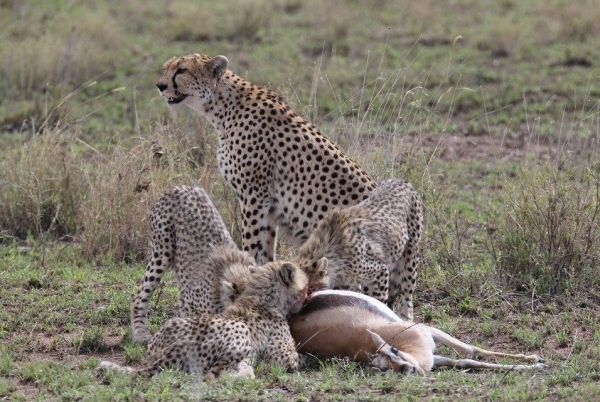“Mom knows best”– the adage is true not just for humans but also for many animals, including the cheetahs, wood ducks, and jaguars studied by experts at Virginia Tech.
Wildlife expert Anne Hilborn recently discovered that cheetah mothers change their eating habits when they have young by their side. Instead of eating meals as quickly as possible, mothers with cubs slow down and spend time watching out for threats like lions. This allows enough time for mothers and cubs to eat more safely.
“Mothers have to be extra vigilant since cubs eat more slowly and will take breaks to rest or play,” says Hilborn. She is a faculty fellow at the Center for Communicating Science and earned her Ph.D. from the Department of Fish and Wildlife Conservation in the College of Natural Resources and Environment at Virginia Tech. Her research focuses on how large carnivores impact on the way smaller carnivores hunt and interact with their prey.
A unifying theme for decades in researcher Bill Hopkins’ lab has been understanding how the health and behavior of a mother influences her offspring. His team discovered wood ducklings are more likely to run faster, jump higher, and have stronger immune systems when their mother spends more time sitting on eggs, instead of away seeking food for herself. Wood ducks are famous for surviving jumps upwards of 50 feet out of their nests.
Continue reading at Virginia Tech.
Image via Virginia Tech.


